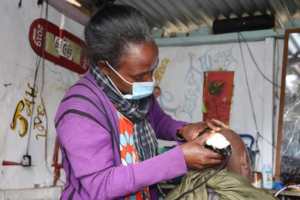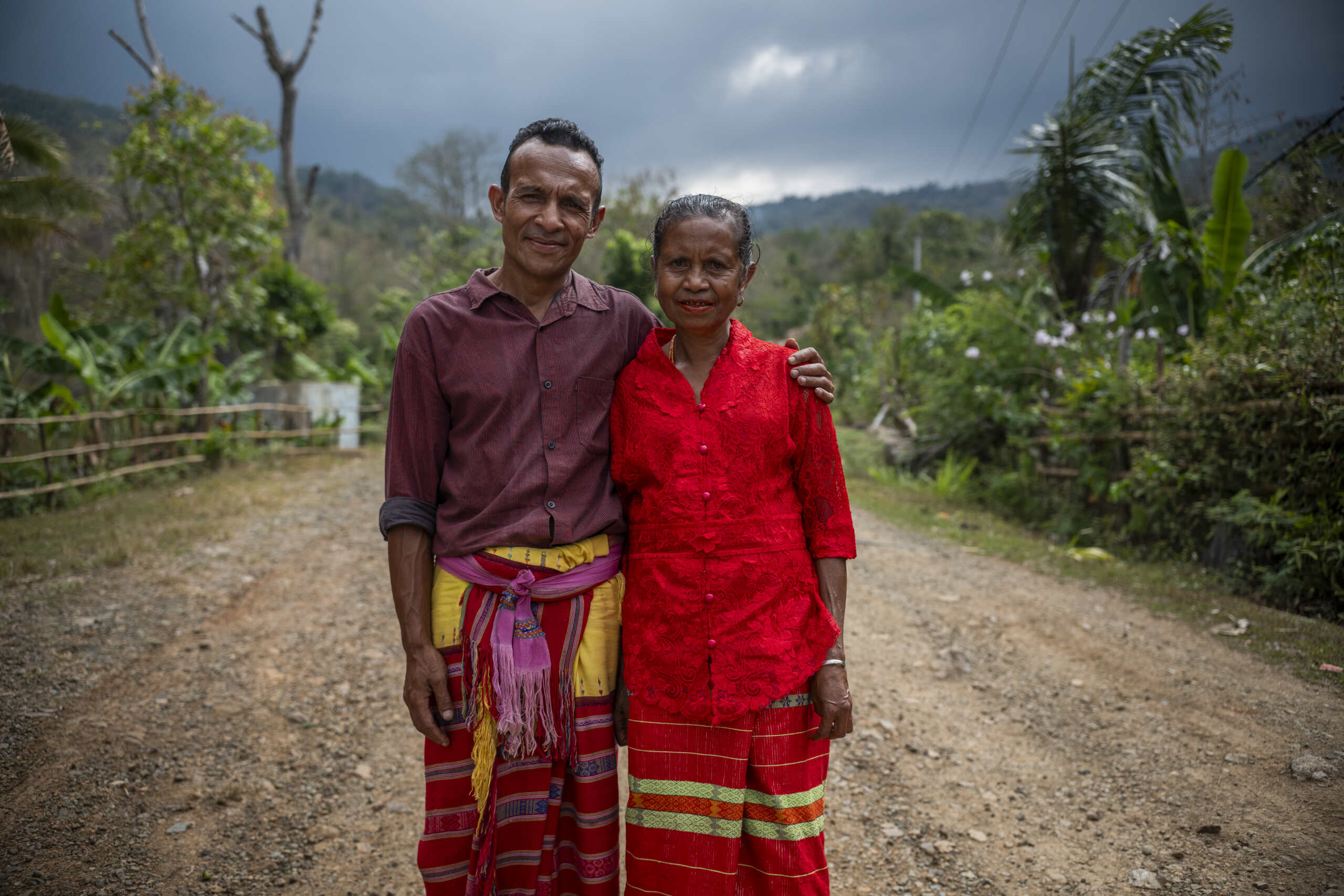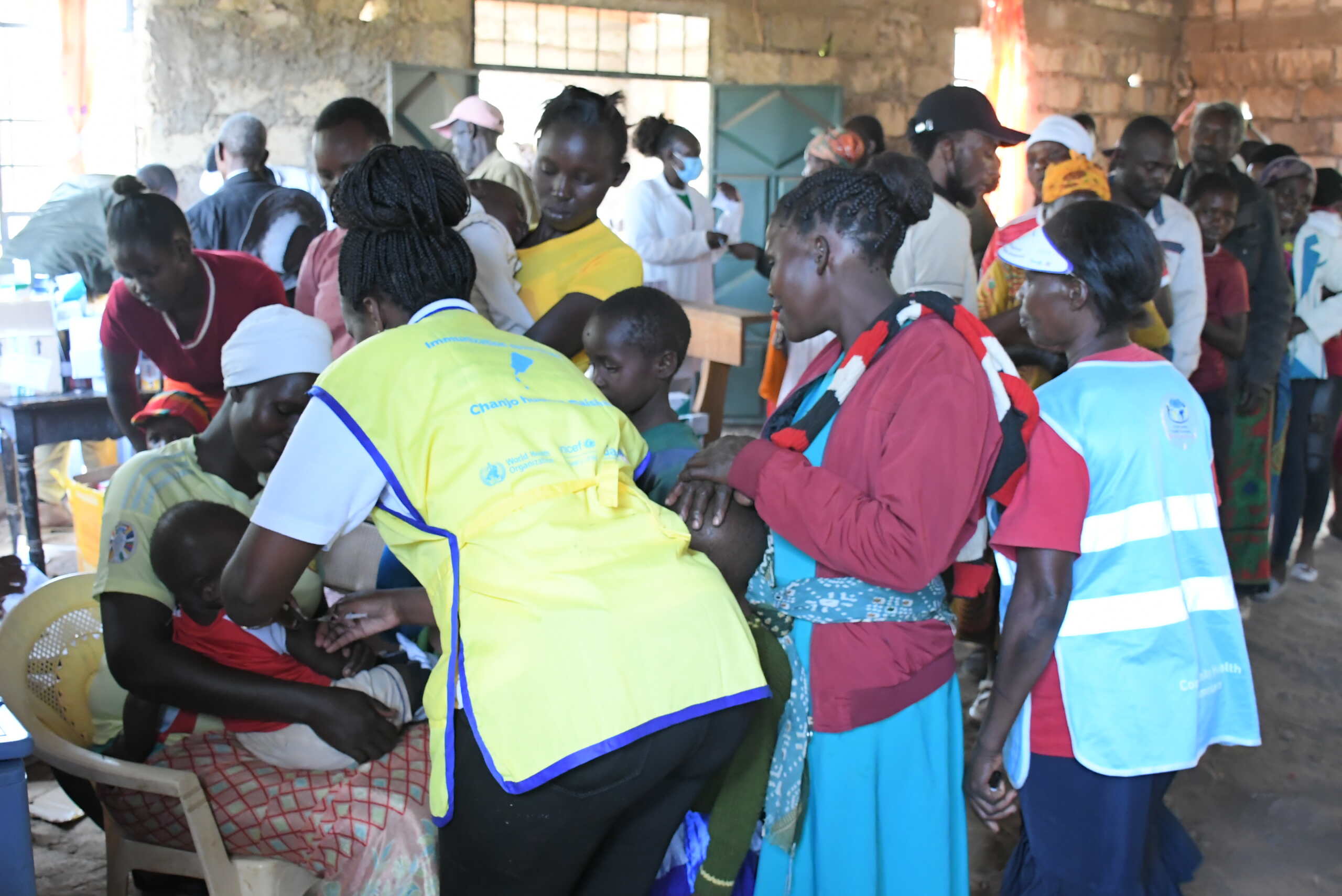Celebrating Mother’s Day: Lucy’s Story
Stories | May 2, 2022
Around the world, parents are united through their unconditional love for their children and their willingness to go above and beyond to protect and provide for them. However, for some parents, especially those with disabilities in some of the poorest parts of the world, this can be challenging.
This Mother’s Day, we’re sharing a story about a remarkable woman named Lucy who has not let the challenges linked to her disability get in the way providing for her two children.
However, life for Lucy has not been easy. She was born deaf and grew up in a very remote and conservative village in Kenya. Unable to communicate easily, she found it difficult to find employment to support herself and her family. Thankfully, with support from CBM Australia, Lucy has been able to develop her skills and become financially stable.
In Kenya, CBM have been supporting partners on a project that strengthens economic development and resilience for people with disabilities and their families. For Lucy, getting involved in the project meant joining a Self-Help Group (SHG) alongside other women with disabilities and carers of children with disabilities.
Through the SHG, Lucy joined different trainings about how to improve her income, such as financial training and a barbering course. These trainings gave Lucy the skills and knowledge needed to confidently open her own barbershop, which she called ‘One Great Love Kinyozi’ (Kinyozi means barber in Swahili). Lucy chose to open a barbershop because she felt that was a suitable job for someone who communicates through sign language.
“I choose a Kinyozi [barbering] after I realised a gap within our market, and also because it requires less expressions, you just come, sit down and get a shave,” Lucy explained in sign language.
Unfortunately, however, a short time later Lucy’s shaver broke. Unable to cut hair, she was forced to close the shop and take up a manual labour job to support her family and save money to fix or buy a new machine.

The following year, Lucy and other SHG members received training on a micro-finance model that involves group members pooling their savings together to build a larger sum of money, and then loaning it out to group members who pay it back with a small amount of interest. Since most people with disabilities do not have access to loans through mainstream financial providers, the aim of this approach is to economically empower people with disability and their family members by enabling them to use their own small savings to access loans.
Through her labouring job, Lucy was able to save enough money to be eligible for a larger loan from the savings group, which she used to buy a new shaving machine.
Finally, Lucy’s barbershop opened again. Cutting five to 10 client’s hair each day, Lucy was soon making enough money to rent an apartment, send her two children to school and pay for their basic needs. Still able to save money in her savings group, Lucy hopes to expand her business and build a permanent home for her young family.
“[The project] came to us when we were in most need, at least I can say that for myself. Within a short time, I have so many good things to say about them. God bless them and their supporters,” Lucy explained in sign language.
CBM acknowledges the support of the Australian Government through the Australian NGO Cooperation Program (ANCP)
https://www.cbm.org.au/stories/celebrating-mothers-day-lucys-story
Related Stories

Week 1 – Lent series 2026
As we enter the season of Lent, we’re taking time as a community to pause, reflect, and draw closer to the heart of God. Lent invites...

How CBM is making a difference in Indonesia
For more than 45 years, CBM Global has been working alongside communities in Indonesia to ensure people with disabilities...

Coordinating inclusive health outreach in Meru County
For many households in Meru’s rural and remote areas, basic health services are physically...
